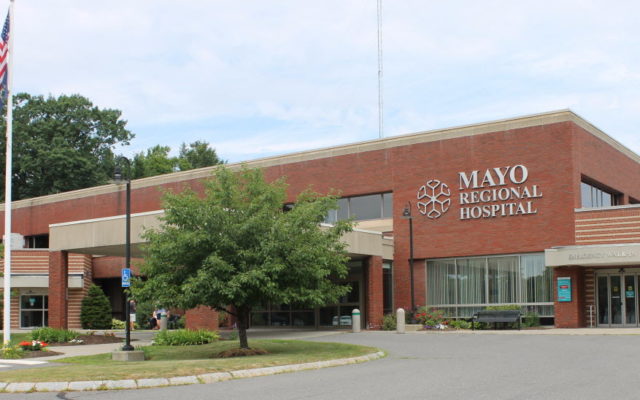
Northern Light faces wide vaccine disparities across system as it plans inoculation requirement
By David Marino Jr., Bangor Daily News Staff
Northern Light Health faces wide disparities in vaccination rates across its 10 hospitals as the health system prepares to become one of the state’s largest employers to require COVID-19 vaccinations.
Northern Light said Aug. 2 that it would require that all of its more than 12,000 employees be vaccinated once one of the three available vaccines receives general authorization from the U.S. Food and Drug Administration. The three vaccines currently have emergency use authorization from the FDA, with general approval of the Pfizer-BioNTech shot expected within the next few months.
Those who refuse to get vaccinated without qualifying for exemptions would not be put back on the schedule, Chief Human Resources Officer Paul Bolin said Aug. 2. No employees who start after the FDA grants general approval will be hired unless they are inoculated.
About 79 percent of Northern Light employees statewide were vaccinated as of July 20, Bolin said. That rate varies widely across the system’s 10 hospitals, however, largely reflecting the county-by-county variations in immunization among the general population. Vaccination rates also differ between positions, with physicians and nurses having higher rates than those in other positions, Bolin said.
Mayo Hospital in Dover-Foxcroft and Sebasticook Valley Hospital in Pittsfield had the lowest vaccination rates, with about 65 percent of employees at the two hospitals fully vaccinated as of June 30, according to Maine Center for Disease Control and Prevention data. About three-quarters of Eastern Maine Medical Center employees in Bangor were fully vaccinated, with almost half of all unvaccinated employees across the system working at the Bangor hospital.
Northern Light Mercy Hospital in Portland recorded the highest vaccination rate in the system, with 84 percent of employees vaccinated. Northern Light Blue Hill Hospital was close behind with 83 percent of employees vaccinated. Nearly 80 percent of employees at A.R. Gould Hospital in Presque Isle, C.A. Dean Hospital in Greenville and Maine Coast Hospital in Ellsworth were vaccinated.
The Brewer-based hospital system’s decision came after weeks of deliberation and in response to the spread of the delta variant of the coronavirus. As cases rise in Maine, health system officials said they needed to have employees prepared to respond and at far less risk of contracting the virus themselves.
Many unvaccinated employees have cited the shot’s emergency use authorization as the reason why they have not yet been vaccinated, Northern Light Chief Quality Officer Dr. Navneet Marwaha said Aug. 2. That’s a major reason why Northern Light will wait for general use authorization to mandate the shot, Marwaha said.
Education is key to motivating unvaccinated employees to get the shot, especially in hospitals with lower vaccination rates, Marwaha said.
She said some female employees had been concerned that the shot would affect their reproductive health, a common concern. Those employees had been connected with specialists within the system who could speak about the vaccine being safe and effective.
The American College of Obstetricians and Gynecologists recommends that pregnant women and breastfeeding mothers get vaccinated and points out that claims linking the vaccine with infertility are unfounded.
“Our strategy is really to understand the reasons for vaccine hesitancy,” said Marwaha, who noted that the impetus behind not getting the shot varied from employee to employee.
Those who get rare religious or medical exemptions from the vaccination requirement would need to be tested twice a week for COVID-19 until the U.S. Centers for Disease Control and Prevention says that the pandemic is over, Bolin said. Those exemptions would be granted on a case-by-case basis.
Bolin and Marwaha were hopeful that the policy wouldn’t drive many employees out of the system. Yet they acknowledged that the road to full vaccination would not always be easy.
“Education does provide the basis for better-informed decisions and for higher levels of vaccination,” Bolin said. “But we know that there’s work to do.”